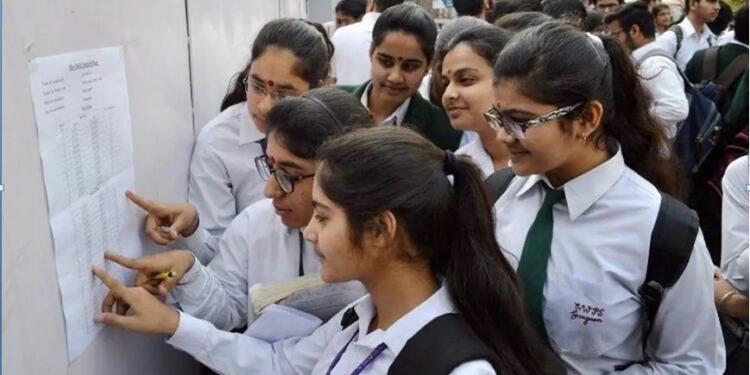- CBSE and ICSE have specially designed grading system divided into 9 categories
- The problem with them is that they fail to incentivise students for studying more
- Grading system has been a failure on all fronts as it has failed to achieve its desired goal
If you observe closely, Statistics probably have the biggest calming influence on Earth. They help you to navigate through the maze of emotional reaction to a situation and give you an exact idea about where the faults lie. But, CBSE and ICSE, premier education boards in India do not seem to have that much faith in numbers. The 90 percent scam is a prime example of that.
Of all the coveted laurels CBSE and ICSE have received over the last few decades, there is a lot of dirt lying under the carpet. Time and again their standardisation system has been subject of public discussions. The standardisation process and their grading system have left a big dent on their reputations.
CBSE grading system
The CBSE grading system is one of the most vague systems ever to come out of a statistical model. It is not designed to reward the best. It is designed to offer a ‘participation trophy’ to students. Students receive grades in five categories. Grade A is reserved for those students who have turned out to be top scorers. Similarly, Grade E is reserved for absolute failures. Except Grade E, all other Grades are further divided into subcategories like A1, A2, B1, B2 and so on.
Grade A1 is attributed to those students whose marks fall in top 1/8th of passed candidates. So, if 48,000 students have passed an exam whose cumulative marks is 500, then top 6,000 (1/8th) students will be provided with A1 grade, no matter how much they score. Similarly, grade A2 will be handed over to the next batch of 6,000 passed students.
Read more: CBSE Paper leaked: Is there a well-planned political conspiracy behind it?
ICSE grading system
ICSE grading system is slightly different from CBSE, but a deeper analysis suggests that it is the other side of the same coin. It provides grades in the form of numbers. Just like CBSE has designated a total of 9 categories (A1, A2, B1, B2……..E), ICSE has also designed a scale ranging from 1 to 9. ICSE website writes and we quote, “The result sheets show the result in the examination as a whole and also indicate the standard reached in each subject taken, by grades ranging from 1 to 9, 1 being the highest and 9 the lowest. Very good is indicated by grades 1 and 2. Grades 3, 4, 7 and 5 indicate a pass with credit, 6 and 7 indicate a pass and 8 and above a failure.”
So, just like grades A1 and A2 are assigned to the creamy layer of marks hierarchy in CBSE, the top students in ICSE are given grades 1 and 2.
Where is the problem?
The main problem lying with these grading systems is that they fail to differentiate between someone being good in studies and someone being cut above the rest. According to the aforementioned example, 6,000 students are to be categorised in one single grouping, which is A1. Now, there is an intra-grade hierarchy among them as well.
Out of these 6,000 students, the topper may have got 499 out of 500. On the lower rung, the student who just made it to A1 category may have scored 460 out of 500. But, in the final analysis, both students are shown to have got Grade A1. How will someone outside differentiate between the two? It is entirely possible that the student who got 39 marks less than the topper may get the job offer based on his grades only, while the topper may not.
Human mind (especially that of little kids) runs on incentives. Kids are highly competitive and prefer to arrange themselves in a hierarchy based on certain characteristics. They have their special categories of ‘intelligent students’, ‘ordinary ones’ and failures. They rarely allow someone outside their realm to come into their in groups. If a student whose perception about himself is that of being an intelligent student and he is put in the same category as ‘ordinary ones’, that little kid will not feel incentivised to toil more.
Read more: CBSE Results: Thousands of students bore the burden of AAP’s greed for praise
Students become unfit for competitive world
These vague categorisations make it next to impossible for students to face the highly competitive environment in the outside world. In the environment outside the school system, the rule of jungle prevails. Whoever is best will come out at the top, while the rest will be left behind. 1 number decides whether you will study in IITs or some dilapidated engineering college located in the outskirts of a small city with no industrial exposure whatsoever.
Same goes for government services examinations as well. Students stuck in the unending cycle of pre-mains interview of UPSC are often found lamenting over ‘1 mark se reh gaya yaar’ (I missed it by 1 mark). The fact is within that 1 mark gap between cut-off and obtained number, there are thousands of other students.
How did we land here?
The simple answer is the influence of Marxists over the education system as well as information dissemination tools such as Television, Internet. These Marxists want to see the world as ‘equal for all’. If you watch modern day TV reality shows, you must have observed that often every individual participating in the competition is showered with praises, no matter how each of them perform. The winner gets less coverage than the overall team.
The same idea has percolated to the school system. The rising fear of students’ suicide forced school system to skirt off its responsibility by creating ‘equality of outcome’ landscape for all. But the student suicide data clearly indicates that it has been a failure on all fronts. Though, boards may claim that now less number of school students are committing suicide, but the fact is the same. Students are now doing it in later stages of their lives, the time when their parents need them most. Even the claim that less school students are committing suicide will be vague as there is no data available in the public domain.
The grading system is an absolute failure at the end of the day. It is incentivising idiots to study less, while prohibiting the best from excelling.



























